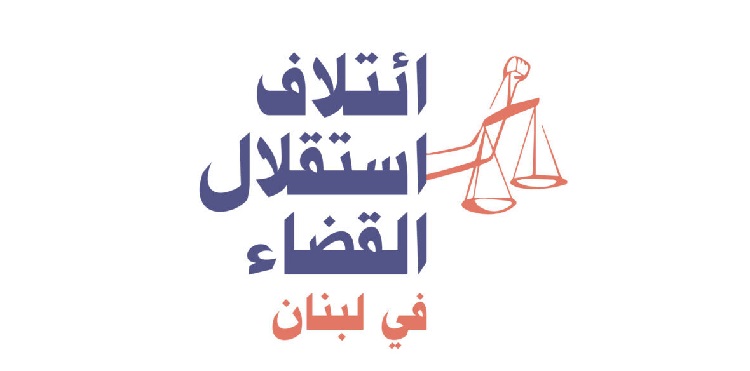Independence of the Judiciary Coalition Statement on Gaging Judges: A Blackout Imposed via Professional Ethics

On 26 April 2023, amidst the public debate over the restriction of lawyers’ freedoms, Minister of Justice Judge Henry Khoury directed two circulars to all judges. Circular no. 352 stipulated that all judges must refrain from any kind of media appearance and from publicizing any stance in the media, online, or on any other platform without first obtaining permission from the relevant authority. Circular no. 348 prohibits judges from communicating directly or indirectly with any embassy, governmental or nongovernmental organization, or association about participating in forums or workshops domestically or abroad or for any other reason until the organizer duly submits a request to the minister. It also requires judges to obtain the minister’s permission at least ten days before traveling abroad.
Hence, while the first circular aims to gag judges, the second aims to prevent them from any contact with any party beyond the judiciary in a manner that imprisons them in silence and isolation, which are ideal conditions for exercising pressure on them.
The minister did not neglect to demonize communication with non-judges, implying that some judges forge relationships with foreign parties just because they want to travel and ignoring the advantages of a judiciary open to social forces and participation in forums and workshops. He also threatened judges who violate the bans with disciplinary action.
Following this negative development, the Independence of the Judiciary Coalition (IJC) would like to state the following:
Limiting Judges’ Freedoms and Independence Safeguards
The first effect of the two circulars is to limit judges’ freedoms in contravention of the Constitution, the 1983 UN Basic Principles on the Independence of the Judiciary, and the Bangalore Principles of Judicial Conduct. Besides impinging on judges’ constitutional freedoms, they also reduce the safeguards of judges’ independence because freedom of expression and communication is one of the most important such safeguards in the face of authoritarianism, interference, and obstruction. Our greatest concern is that these circulars will impact, in particular, the Lebanese Judges Association and its ability to issue statements, hold press conferences, and appeal to public opinion. Judges’ duty of restraint is no counter argument because it is limited to maintaining impartiality in pending cases and – conversely – they have a duty to condemn any impingement on the principles of human rights and judicial independence. This the IJC explained clearly in the judicial independence bill that it submitted in order to avoid any ambiguity, before the bill was ravaged by the Administration and Justice Committee.
Another Step in the Plan to Impose a Blackout on the Justice System
The minister’s circulars complement the Beirut Bar Association’s 3 March 2023 decision to subject lawyers’ freedoms to prior censorship. These measures curb and control the freedoms of judges and lawyers at a time when the public has a pressing and paramount need for legal knowledge. They confirm the concerns that we raised previously, namely that the suppression of lawyers’ freedoms is part of a plan to impose a blackout on affairs inside the justice system and, ultimately, shield the system of impunity from any light or voices. This connection refutes the Bar Association council’s statements that its decision is a purely internal affair. Neither the Bar Association’s decision nor the minister’s decision is an internal matter; rather, they were both adopted to undermine public freedoms and – by extension – society’s right to justice, which cannot be reached without these freedoms.
Discipline as a Scare Tactic
The third issue is the emerging tendency toward using disciplinary tools to suppress freedoms and enforce official paradigms for practicing law and judgeship in isolation from the media and public sphere and without ever appealing to public opinion. In other words, the blackout is being imposed on the justice system using professional ethics. This is demonstrated by the Judicial Inspection Authority’s selective indifference to some infractions and crackdown on others, and it culminated in the Judicial Disciplinary Council’s decision to dismiss Judge Ghada Aoun. We must emphasize that, contrary to what these disciplinary proceedings imply, under the current circumstances they are just as authoritarian and repressive as the repressive actions that could result from criminal prosecutions.
Given the escalating suppression of freedoms inside the justice system, the IJC calls for the following:
- We call on the Ministry of Justice to immediately rescind the two circulars that violate the UN’s principles of judicial independence, the separation of powers, and the Constitution.
- We call on the Bar Association’s council to take advantage of the adjournment of the challenge to its 3 March 2023 decision in order to reconsider and rescind it, especially now that its true goals are becoming clear.
- We call on all judges and lawyers to collectively or individually stand up to the decisions and circulars aimed at limiting their freedoms.
- We call on all social forces and media to consider the grave effects that the application of these decisions and circulars has on public interest and the justice system’s chances of overcoming the system of impunity.
- We call on the Beirut Court of Appeal chamber that examines syndicate cases to consider the dimensions of the case before it now that the issue of lawyers’ freedom is closely coupled with the issue of judges’ freedom and independence.
The IJC will take any measures available domestically or internationally to confront this trend of suppressing the voices of justice and extinguishing its lights.
This statement is an edited translation from Arabic.



